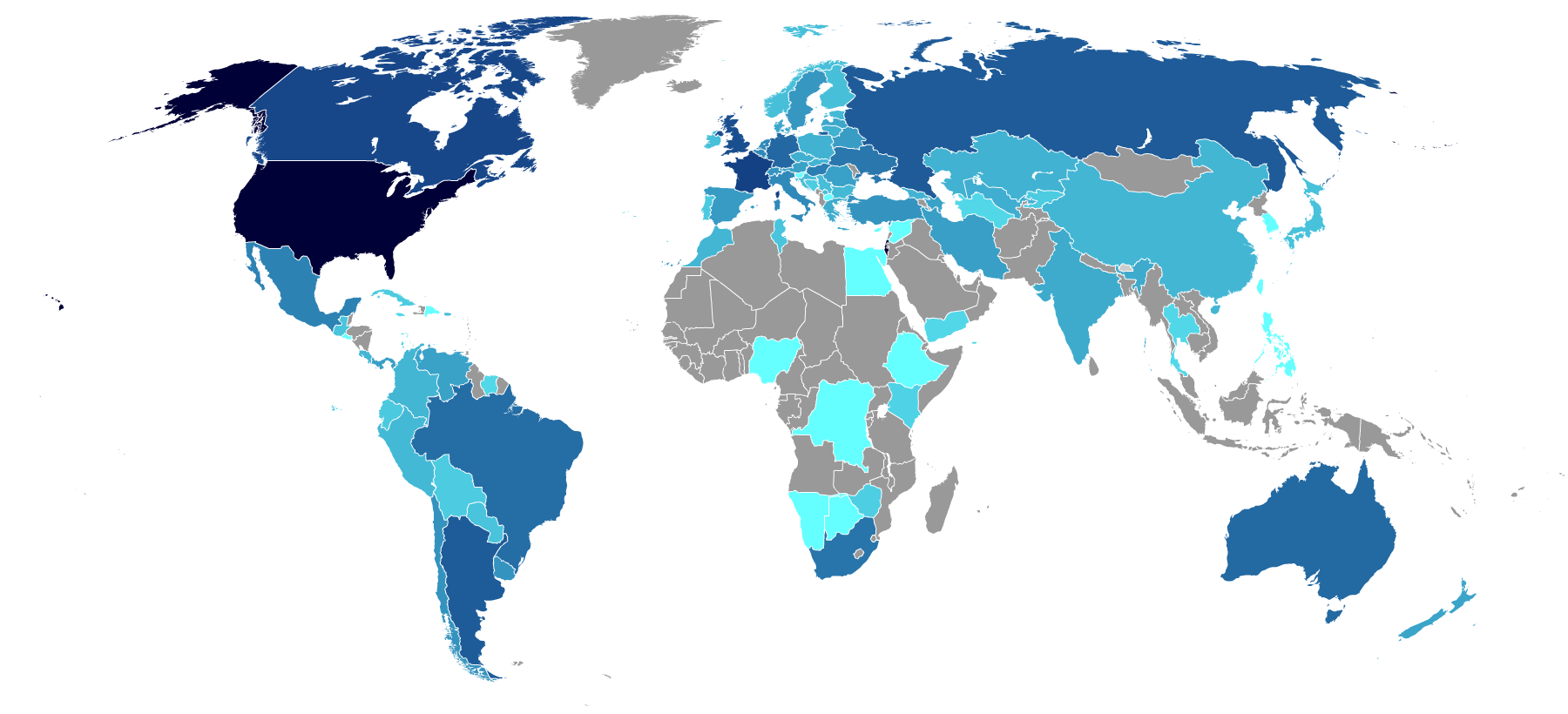The Jewish people: Where are we? Where are we going? How do our numbers of those moving compare with other countries?
Jews move. We always have done so. We hear complaints of here and there, and aspirations/hopes for here and there.
Some figures:
According to Israel’s Central Bureau of Statistics and The Jewish Agency for Israel, 148,083 Americans have settled in Israel between the years 1948 and 1918.
And according to the Central Bureau of Statistics, in 2017 between 561,000 to 599,000 Israelis were living abroad. That was 6.4% of Israel’s population. But according to the World Bank, only 4.6% of Israel’s population lives abroad.
By comparison, according to the World Bank data, fully 18% of Lebanon’s population lives abroad; 10.7% of Mexico’s; 9.1% of Greece’s; 8% of the United Kingdom’s; 5.1 of Germany’s; 4.9% of Italy; 2.1% of Australia’s; and 1% of America’s.
How many of the Israelis living abroad live in the U.S.?
There are lots of figures, ranging from 100,000 to 600,000!
What we don’t know is how many of those said to be in Israel or the U.S. are actually moving back and forth? Also, the estimates generally do not count the children of migrants born since the last move.
Lots of us have personal stories, about acquaintances, friends, and family members living here and there.
And also elsewhere.
Remember, Jews move. Within and between countries. For reasons of work, family connections, fantasies or ideology, or whatever appeals to a people historically unrooted.
There is also the reason of war, as well as the need to flee or relocate, at least for a while.
Currently there are more than 3 million refugees from Ukraine. Several thousand have reached Israel. As well as migrants from Russia.
Some are Jews. Some are the grandchildren of a Jew, and thus entitled under Israel’s Law of Return to citizenship. Others have contacts in Israel, although they are not Jews. Perhaps a brother, sister, son, daughter, or business associate are in Israel.
Currently this is a hot topic here. The Minister of Interior has gone back and forth, with lots of fiery comments from fellow ministers, and apparently some lack of communication down the line to the workers who must administer department policy.
An arrival hall at the airport has scenes of families sleeping on the floor, and waiting decisions. Yet the minister has said that all will be put up in hotels while their cases are being determined.
The Law of Return grants citizenship to anyone with one Jewish grandparent. Usually, that takes a bit of paper to prove one’s claim. It could be testimony from a local rabbi, or documents showing family connections for someone who is not an active Jew. But now there’s a war, and people are leaving homes with a single suitcase. They are unlikely to have the documents usually required.
How it’s being managed is beyond my limited sources of information. There are reports that the Minister of Interior has decided that only those meeting a religious definition of being Jewish will be allowed to attain citizenship. Yet other reports that virtually all migrants are being let into Israel, with the determination of their permanence being left to be sorted out. With or without documents?
Lots of quarrels about these newcomers. We hear that the non-Jews are not being provided with health care. But a quasi-government organization is offering them care. And some are arguing that Israel is a European country, and that our openness to Ukrainians does not obligate us to take refugees from Africa. But the Minister of Immigration Absorption is an Ethiopian. And she is not quiet in opposing this posture. She’s reminding us that thousands of Ethiopians, claiming to be Jews, are waiting a long time for immigration.
The New York Times cites cases in Eastern Europe where African refugees are beaten by officials, while those from Ukraine are treated well.
And for many of the newcomers who arrive in Israel, Jews and others, there may be no desire to actually put down roots.
Indeed, that’s a problem for many of the arrivals from more settled countries. People come, perhaps on a whim, or for more serious reasons. Some with the intention of trying it. Others with a mixture of motives. Many go elsewhere after a period of time.

























